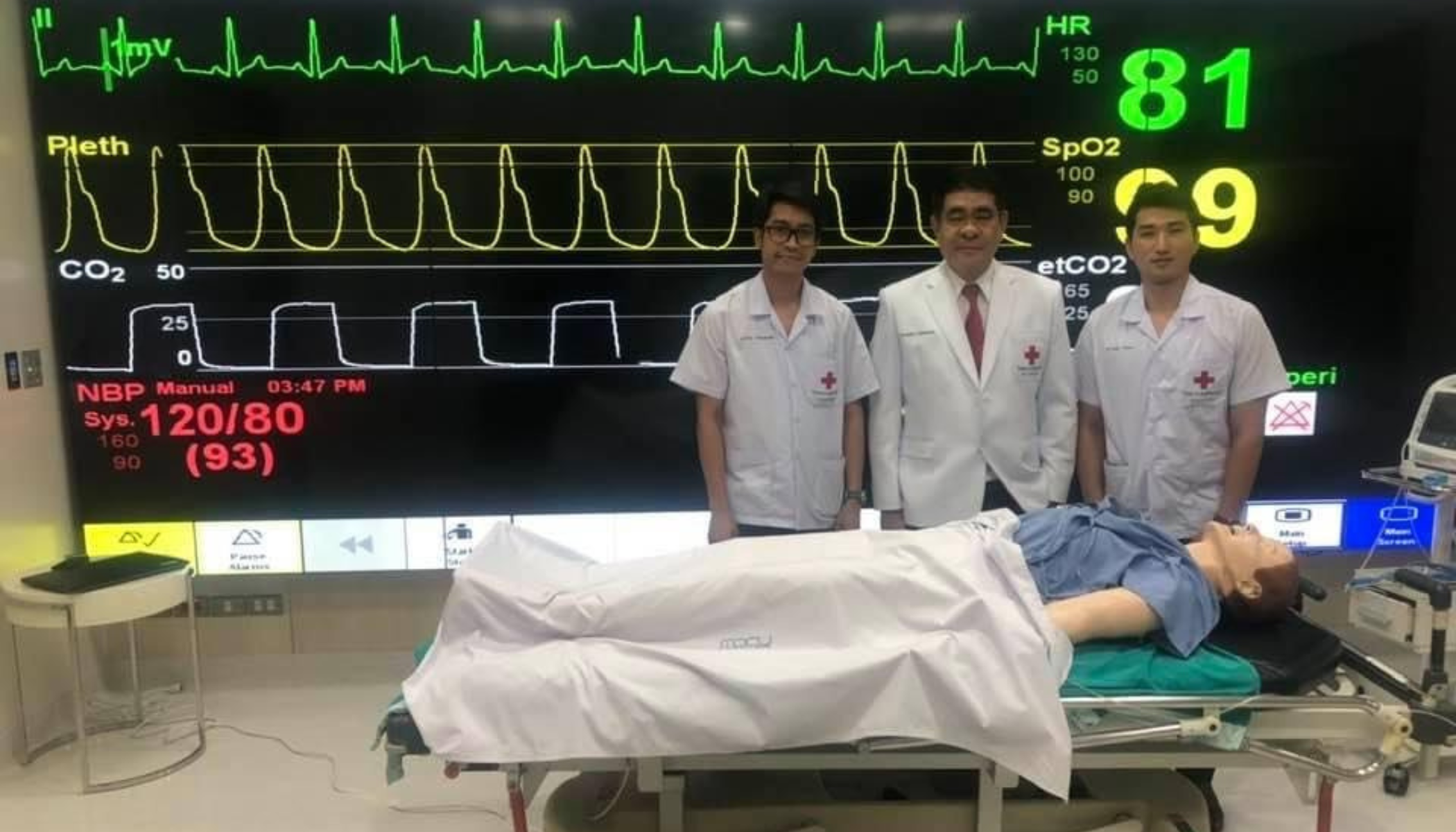We interviewed Dr Sopheakdey Pho about training at King Chulalongkorn Memorial Hospital in Bangkok, Thailand
WFSA: Hello, please introduce yourself
Dr Pho: Hello everyone, my name’s Sopheakdey Pho. I’m currently pursuing a one-year fellowship in General Anaesthesia at King Chulalongkorn Memorial Hospital in Bangkok, supported by WFSA-BARTC.
Back home, I’m an anesthesiologist at HANDA Medical Center and a health educator at Battambang Regional Training Center for Health. Both centres are located in Battambang City, Cambodia. My main responsibility is providing quality anaesthetic care and teaching basic medical science to nursing students.
WFSA: Why were you interested in anaesthesia as a career?
Dr Pho: Since I was a medical student, anaesthesia has always been my dream job. As an anesthesiologist, you’re exposed to almost all clinical specialties and areas in the hospital setting. It is a complex job that incorporates specific practical and theoretical expertise in the management of critically ill patients, as well as managing acute and chronic pain.
It requires a high level of concentration, generous interpersonal skills and compassion. With multiple clinical and non-clinical skills to do and perform with the innovation of advanced technology, drugs and monitoring equipment, this career can be very challenging and I never tire of learning!



WFSA: Why did you want to pursue a fellowship with the WFSA?
Dr Pho: Because health is wealth. With the good reputation and positive feedback from the WFSA fellowship from alumni in my country during my residency, the WFSA fellowship was an excellent chance for me to improve and strengthen my knowledge, skills, mindset, practice and – ultimately – anaesthesia capacity in Cambodia.
There are low numbers of qualified anesthesiologists in my country. I want to be an active part of the development of anaesthesia practice and learning as it’s essential to share our knowledge and teach the new generation.
WFSA: What is your working day like?
Dr Pho: Every morning 7:30 to 8:30 from Monday to Friday, I join a morning conference with Thai residents for the morning lecture, a case discussion, the anaesthesia journal club and a morbidity and mortality conference.
From 8.30 to 16.00, I then attend in the operating room to process the anaesthetic procedure. At this time, the instructor will instruct and then debrief with us following the case.
Between 16.00 to 18.00 we will see the patient scheduled for the surgery the following day, and discuss the upcoming case with our instructor.


WFSA: What have been the highlights of your fellowship so far?
Dr Pho: I’ve had great opportunities to study many aspects of the anaesthetic procedure. I have had instruction from Thai anesthesiologists from various hospitals all over the country, with different style techniques. I also had the chance to join in with congresses, workshops, hands-on practice and pain conferences (supported by IASP) for the management of pain.
I’ve met many people from various countries who have shared their own experiences working in anaesthesia. I’ve built friendships with other fellows, local people and international fellows. Aside from studying, we have also taken cultural trips to learn about Thailand’s religious and cultural history.
WFSA: What is a case that stands out to you?
Dr Pho: A standout case was the HIPEC (Hyperthermic Intraperitoneal Chemotherapy) surgery in a Thai 49-year-old female who had been diagnosed with colon cancer, with spread of metastasis intra-abdominal organs. The estimated time of surgery was around 20 hours, so our anaesthetic plan was to place a thoracic epidural catheter at T8 for intra and post-op pain control, invasive hemodynamic monitoring such as A-Line, C-Line, cardiac output monitoring, large bore IV lines, vasopressor drugs, plan for ICU.
We also prepared to manage and control body temperature when the surgeon finished cytoreductive surgery and start chemotherapy drugs, applied inside the abdomen.
After surgery, the patient was still intubated and sent to ICU for 3 days. For days 1-3 the patient’s hemodynamic was stable and improved with low graded pain score, and extubation was carried out on day 2. They then sent the patient to the ward and she was discharged on day 8.
From this case, I learned how to prepare for and manage complex situations in major surgery and how to solve problems with proper planning and effective communication with the team.
WFSA: Why were you drawn to Thailand?
Dr Pho: Thailand has a good healthcare system with standard anaesthesia practice. It has a stable economy, good security and tuition fees, and living expenses are generally lower compared to some other countries. Thailand also has common cultures, foods and religions to Cambodia so I can adapt fast and focus on studying without any barriers.
My favourite thing about Thailand is that the Thai people are so friendly. There are also many places to visit, and the food is delicious (Som Tum is my favourite). Public transport is very easy for living and studying



WFSA: What transferable skills have you learned that could be applied back home?
Dr Pho: There are many positive transferable skills and approaches I can take back to my country, including problem-based learning, case-based learning, how to make an anaesthetic plan properly, planning for appropriate pain control post-op and how to optimise the patient’s condition in critically ill patients or those with co-morbidities before the surgery.
I feel I can now advise on anaesthetics of choice and appropriate preparation of the patient before, during and after surgery. Learning non-clinical skills such as good communication and clinical judgement have also been vital in my development as an anesthesiologist.
The WFSA offers its Fellowships to anaesthesiologists from low and middle-income countries to increase their skillset and become leaders for anaesthesia once they return to their home countries. Upcoming WFSA fellowships and how to apply






